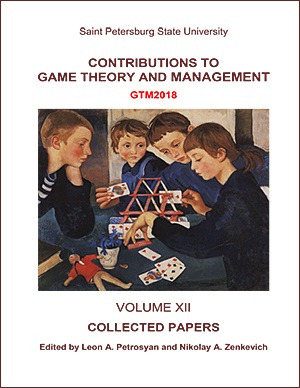Stackelberg Equilibrium of Opinion Dynamics Game in Social Network with Two Influence Nodes
Abstract
The alteration of opinions of individuals in groups over time is a particular common phenomenon in social life. Taking into account the influence of homogeneous members and some special influential persons, an opinion dynamics game is established. In a social network, two special influence nodes pursuing their certain goals with the process of influencing the opinions of other normal nodes in discrete time is considered. From the perspective of non-cooperation, Stackelberg equilibrium is selected as the solution of the opinion dynamics game. Given distinct information knowledge, players will derive different equilibrium strategies. The open-loop and feedback information configurations are investigated. In the two-person non-cooperative dynamic game, techniques of Pontryagin’s minimum principle and dynamic programming are adopted to derive the equilibrium levels of influence for influence nodes and the equilibrium opinions for other normal nodes in the network. To compute and compare the various equilibrium concepts under different information structures, numerical results are presented for different scenarios.
Keywords:
social network, influence, opinion dynamics, Stackelberg equilibrium
Downloads
References
Downloads
Published
How to Cite
Issue
Section
License
Articles of "Contributions to Game Theory and Management" are open access distributed under the terms of the License Agreement with Saint Petersburg State University, which permits to the authors unrestricted distribution and self-archiving free of charge.




